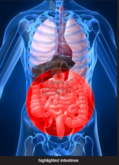Biosimilars/Research
Pharmacovigilance of biologicals in Denmark
As a result of the increasing use of biologicals and biosimilars in Denmark, the Ministry of Health (MoH) in partnership with the country’s regulatory agency has set up an action plan to monitor biologicals and improve pharmacovigilance, as well as to improve understanding among healthcare professionals and patients [1].
Filgrastim follow-on biological has similar efficacy and safety in breast cancer patients
A study comparing two filgrastim formulations for controlling chemotherapy-induced neutropenia has reported similar efficacy, safety and non-inferiority of the biosimilar [1].
Marketing authorization for NBCDs in the EU
The regulatory body for approval of medicines in the European Union (EU) is the European Medicines Agency (EMA). The agency is responsible for the scientific evaluation of medicines developed by pharmaceutical companies for use in the EU and this also includes non-biological complex drugs (NBCDs).
The European Pharmacopoeia monographs for biotherapeutic products
European Pharmacopoeia (Ph. Eur.) monographs for biologicals have existed since the 1990s and remain the publicly available standard defining the quality of these medicines. Continued development of such monographs, however, faces considerable challenges and the value and utility of these monographs have been questioned in recent years. What such challenges are and how they can be overcome is discussed by Head of Division of the European Pharmacopoeia Department at the EDQM, Dr Emmanuelle Charton, in a GaBI Journal paper [1].
Study of top-down infliximab use in children with Crohn’s disease
The Erasmus Medical Center, in collaboration with the Netherlands Organisation for Health Research and Development and biosimilars maker Hospira, now Pfizer, is carrying out a study to investigate the benefits and risks of the use of infliximab as first-line use for children with active perianal fistulising Crohn’s disease [1].
Evidence on biosimilar efficacy and safety leads to ASAS/EULAR recommendation
A study of biological disease-modifying anti-rheumatic drugs (DMARDs) in patients with axial spondyloarthritis (axSpA) found no reason for physicians not to prescribe infliximab biosimilars [1].
Improving efficacy of biologicals without increasing cost
Biologicals targeting antitumour necrosis factor-α, such as Remicade (infliximab) and Humira (adalimumab), have been used for the treatment of chronic inflammatory diseases for many years. The advent of biological therapies raised significant pharmacoeconomic concerns, because the cost of biological treatment is much higher than the cost for conventional treatments, typically Euros 10.000‒20.000 per patient per year. This is an issue discussed by Professor Ann Gils from the Department of Pharmaceutical Sciences, KU Leuven, Belgium [1].
Savings to be made by using etanercept biosimilar in UK
A study of patients taking etanercept to treat rheumatoid arthritis or psoriasis in the UK has shown that there are substantial savings to be made by using the biosimilar [1].
Positive results for infliximab biosimilar in Crohn’s disease
Results of a phase III study of Celltrion’s infliximab biosimilar (Remsima; CT-P13) ‘indicate that the safety and efficacy of CT-P13 in patients with moderate-to-severe Crohn’s disease is comparable to those treated with reference infliximab’.
Candidate trastuzumab biosimilar meets equivalence requirements
Mylan and Biocon reported that their jointly developed, candidate trastuzumab biosimilar (MYL-1401O), had met equivalence requirements. The results of the study were published in the Journal of the American Medical Association (JAMA) in January 2017 [1].
Safe for IBD patients to switch to biosimilar infliximab
A UK study has shown that inflammatory bowel disease (IBD) patients can be safely switched from originator infliximab, Johnson & Johnson’s and Merck’s Remicade, to biosimilar infliximab using a managed-switching programme [1].
Regional management of biosimilars in Germany
Biosimilars offer alternative treatment options and reduce the financial burden on healthcare systems often brought about by more expensive originator drugs. Approved biosimilars of tumour necrosis factor-alpha (TNF-α) inhibitors, such as infliximab or etanercept, are managed differently across Europe. A recent study by Dr Mathias Flume assesses the prescription structure and regional uptake of these biosimilars across Germany, with focus on the Westphalia-Lippe region [1].
Positive results for Pfizer’s adalimumab biosimilar
US pharma giant, Pfizer, reported positive top-line results from a comparative study of their candidate adalimumab biosimilar (PF-06410293). The originator biological, AbbVie’s Humira (adalimumab) had sales of just over US$14 billion in 2015 [1], up 11.7% on the previous year, and retaining its place as the top grossing pharmaceutical product globally.
Positive phase III results for adalimumab biosimilar from Coherus
A phase III study of an adalimumab biosimilar (CHS‑1420) from Coherus has reported that the biosimilar is ‘similar’ to AbbVie’s Humira (adalimumab), according to the company.
Improvement in uptake of biosimilars in Spain
Author Ainhoa Aranguren Oyarzábal and colleagues from the Madrid Health Service (MHS), Spain found that there has been an increase in the uptake of biosimilars in Spain since indicators were introduced [1].
Uptake of biosimilars increasing in Spain
Use of biosimilars in Madrid, Spain, has increased after approaches were introduced to try and improve uptake of biosimilars in the country, according to Ainhoa Aranguren Oyarzábal and colleagues from the Madrid Health Service (MHS), Spain [1].
Approaches to increase uptake of biosimilars in Spain
Ainhoa Aranguren Oyarzábal and colleagues from the Madrid Health Service (MHS), Spain, describe approaches that have been introduced in Spain to try and improve uptake of biosimilars in the country [1].
A strategic approach to increase uptake of biosimilars in Spain
Ainhoa Aranguren Oyarzábal and colleagues from the Madrid Health Service (MHS), Spain, describe the strategic approach that has been introduced in Spain to try and improve uptake of biosimilars in the country [1].
Improving uptake of biosimilars in Spain
Ainhoa Aranguren Oyarzábal and colleagues from the Madrid Health Service (MHS), Spain, investigated how efforts to improve the uptake of biosimilars in the country have been working.
Assessing the immunogenicity of monoclonal antibodies
Safety is a major concern when it comes to biologicals (including biosimilars) and the most critical safety concern is immunogenicity. This is especially important in monoclonal antibody (mAb) biologicals, which are large molecules with complex structures and functions and which represent the largest class of biologicals [1].






















